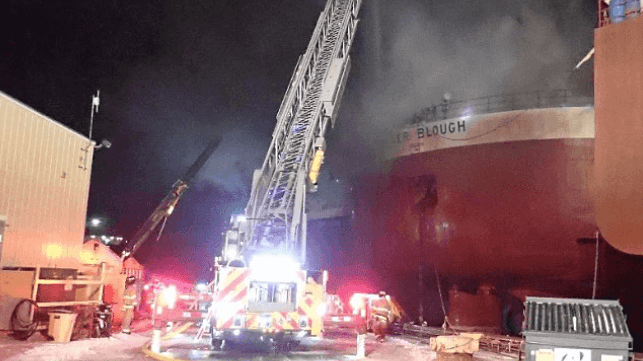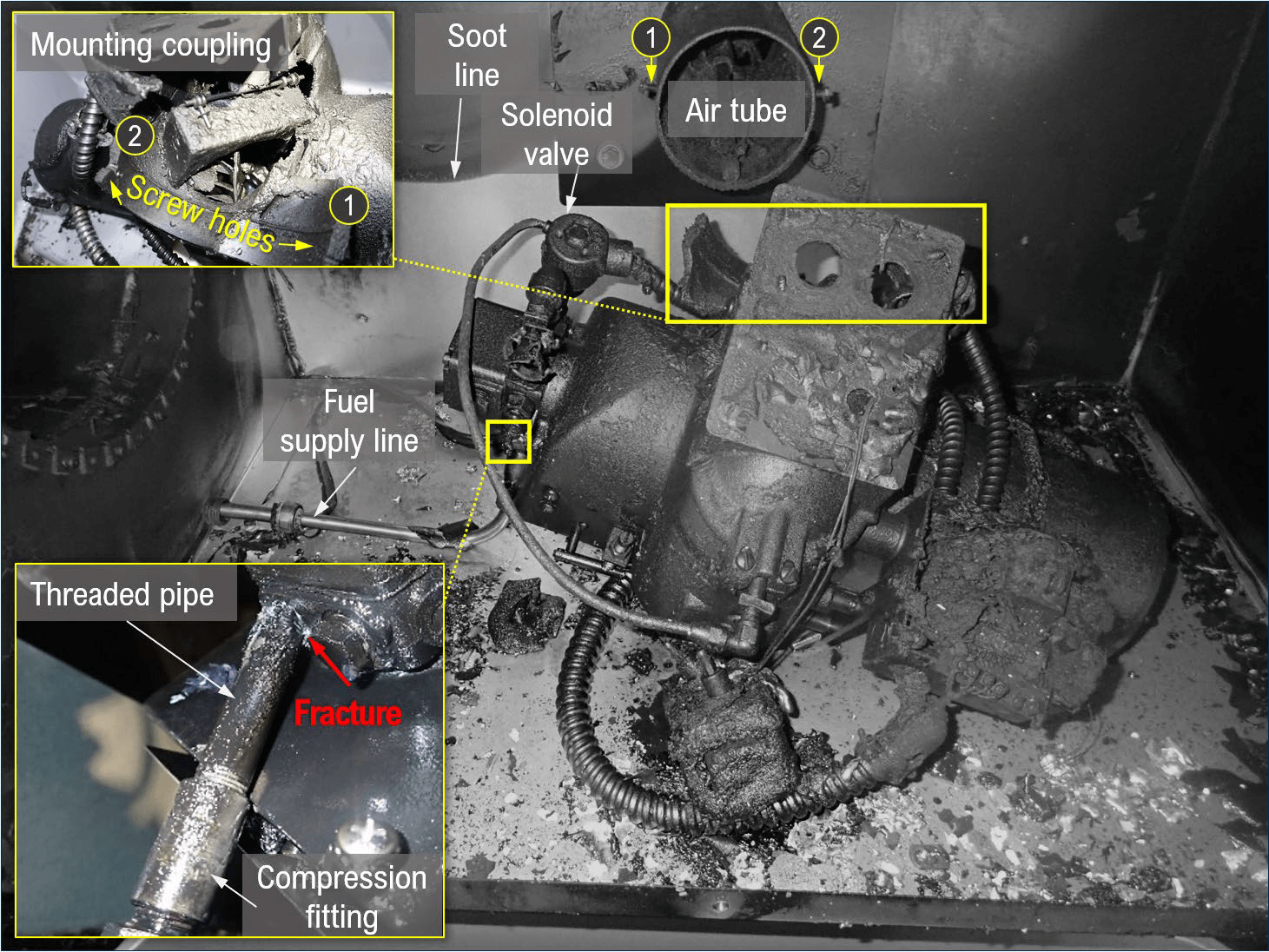NTSB: Unregulated Furnace System Sparked Fire on Roger Blough

The National Transportation Safety Board has issued new recommendations for safe layup for ships on the Great Lakes, based on findings from the fire aboard the bulker Roger Blough last year.
On Feb. 1, 2021, the Roger Blough was moored in Sturgeon Bay, Wisconsin in winter layup. A fire started in the engine room, then progressed to her unloading conveyor belts, which caught fire and burned. This caused extensive damage to the ship, on the order of $100 million. The sole caretaker on board safely escaped to the pier, and no pollution was reported.
The NTSB's investigators determined that the fire started with a diesel furnace which had been installed in the engine room to keep it warm overwinter. The burner assembly's mounting coupling broke, and the burner dropped and fractured its own fuel line, igniting a fire.
Once the fire started, a central alarm system went off and automatically notified a list of company contacts. The shipkeeper was not on the list, and he only woke up seven minutes later when the fire alarm in his cabin went off. By that point, the fire was already spreading.
In the month leading up to the fire, the chief engineer and an OEM service tech had removed and reinstalled the burner multiple times while troubleshooting; the repeated removal likely damaged the burner's mounting coupling, leading to its failure, NTSB determined.
In addition, the furnace had no fire-activated automatic fuel oil shutoff valve on the piping before the burner, which would have stopped the fuel feeding the fire and limited its spread. The National Fire Protection Association recommends that furnace burners have a fire-activated quick-closing valve - but the NFPA standard does not yet extend to vessels.
 Courtesy NTSB
Courtesy NTSB
“There are no regulations regarding winter layup procedures for commercial vessels operating in the Great Lakes,” the report said. “The lack of regulations or classification standards related to diesel oil-fired air heating furnace construction, installation, safety shutdowns, and system alarms poses a risk to life and property if the equipment is not installed and maintained to standards similar to those in place for other oil-fired equipment.”
NTSB recommended that the U.S. Coast Guard and ABS should develop standards for furnace installations in line with the NFPA guidelines.
